- Home
- Mack Maloney
Starhawk s-1 Page 3
Starhawk s-1 Read online
Page 3
“We have seen him fly since, Zap,” Berx said, gently interrupting. “He turns out his magnificent contraption twice a day. He performed maneuvers for us that were mind-blowing. And as I said, he did so at speeds that were simply remarkable.”
“And that’s while in-atmosphere,” Erx added. “I can’t imagine his skills in space.”
“Well, his ‘contraption’ certainly can’t be faster than our own space fighters,” Multx asked them.
“Right?”
Erx and Berx exchanged glances. It was considered impolite to criticize any of the Empire’s military hardware, no matter how slight.
“That’s hard to determine with the naked eye,” Berx replied cautiously. “But I believe this man could fly anything. And do it well.”
Multx mulled this over for a few moments. Finally he said: “Well, whoever he is, he’ll be coming with us as well.”
Berx and Erx were taken aback.
“Coming with us?” Erx asked. “Why would that be?”
Multx leaned back in his floating chair and spoke to the ceiling.
“If he’s as good as you two say, denying his talents would not be in the best interests of the Empire.
Every person in this Galaxy is a citizen of it. Every person may enjoy its fruits. But every person also must contribute for the good of all.”
The starship commander was speaking the correct words… but Erx and Berx knew he had other things in mind. A starfighter pilot for his own personal Air Guard perhaps?
“You can’t just snatch him up and carry him away,” Berx said to Multx. “He seems very content here.”
“Besides,” Erx chimed in, “this man saved our lives. An act of goodwill on his part should not become a detriment to his future.”
“Do you really think bringing him to Earth would be a detriment to his future?” Multx asked them suddenly.
To Earth?
Now the two explorers were simply confused. Even the highest officials of the Empire were lucky if they could get across the Pluto Cloud, never mind anywhere near the home planet. It was the same for military officers. Access to the motherworld was restricted to all but the extremely privileged. Why, then, had Multx spoken the holy word of Earth?
“What are you up to, you old fox!” Erx cried. “Clue us in…”
Multx seemed to resist, but only for a moment. The three of them did have a history together. As young soldiers, they’d fought in sixteen major wars and dozens of smaller ones, all before Erx and Berx joined the Empire’s exploratory corps. Multx knew the two men could be trusted and even helpful. Besides, it was considered bad luck these days to exclude friends from grandiose plans.
Multx snapped his fingers, and a small control panel materialized from nowhere. He pushed a series of buttons, and the walls of his quarters began to vibrate slightly. He had activated a hum beam. They were now immune to any form of physical intrusion or eavesdropping, either long-range or close by.
“My friends,” Multx began, “being out on the Fringe for so long has dulled your brain cells. Think… we might have a pilot of extraordinary skill here. Someone who, if you speak the truth, might be better than any starfighter pilot we’ve seen in our long lifetimes.”
“True,” Erx and Berx spoke at once.
“Then what event upcoming on Earth might warrant this man’s attendance?”
The explorers looked at each other and thought a moment. It came to them simultaneously.
“The Earth Race…” Erx whispered.
Multx smiled.
“Bingo,” he said.
The Earth Race was an annual event that pitted the best pilots in the Empire against each other in a twenty-five-thousand-mile, obstacle-strewn, multidimensional contest.
Few things in the Galaxy generated so much excitement. The Emperor himself claimed to be a starfighter pilot in a previous life and thus had great affection for the competition. The hundreds of trillions of subjects within his domain did as well.
It was no exaggeration to say that the winner of the Earth Race would find the Empire at his feet. Untold riches were showered on the champion, including a permanent residence on Earth itself. By tradition, the winner also could have his pick of any assignment at any rank at any post in the Empire. Neither he nor his family would ever want for anything again; in fact, the largesse would be so vast, the winner’s descendants would be well off for many generations to come.
But the rewards of the Earth Race did not stop with the winner himself. Those responsible for getting the right pilot in the right place at the right time in the right machine — they, too, were grandly compensated.
For years, Multx had kept his eyes open, looking for a pilot of extraordinary skill. Throughout the many battles he’d fought, the thought of spotting a special flier in action was never very far from his mind. It was the same for all high officers of the Empire Forces — and the most ordinary of citizens, too. Being associated with the winner of the Earth Race could be the crowning achievement of a long lifetime.
“My God,” Erx whispered now. “Our brains have been dulled! This should have been our first intuition as soon as we realized what Hunter could do.”
He turned back to Multx. “What is your plan, Zap?” he asked in a very conspiratorial manner. “And can we be involved?”
“If this man is all you say he is, the answer is yes,” Multx replied. “The race is but a few weeks away, so the stars are on our side. I have a close connection within the organizing committee. At the very least this person will observe our pilot. If he’s that good, my friend will get him in.”
“You can get him through the Pluto Cloud?” Berx asked.
“Not a problem,” Multx replied.
“But we must be very cautious,” Erx urged. “It has not been unknown for a new pilot to be snatched away by people higher in stature than us. My fear is word of Hunter’s ability will travel fast, and some counsel to the Emperor will co-opt us. You know how nasty that Most Fortunate Earth crowd can be. They would vaporize their favorite relative if it meant getting close to the winner of the Earth Race.”
“As would I,” Multx said without missing a beat.
“And I,” Berx said.
“That’s why we must be wise, my brothers,” Multx went on. “And keep all knowledge of Mister Hunter very low.”
All three were silent for a moment.
“The fact that he is a man from nowhere can actually work in our favor, then,” Erx finally said. ”Even if someone hears whisper of his name, there will be no way of looking him up.”
“Indeed,” Multx said. “Now, we all know the race organizers love a bit of intrigue, so entering an unknown at the last minute will probably be to their liking. I will arrange with one of them to get Mister Hunter through the Pluto Cloud. But until then, we must keep this among ourselves. And Mister Hunter must stay obscure.”
He regally cleared his throat.
“Now I cannot place myself on Earth to pursue this matter so early in the game,” he went on, fingers to chin, stroking his goatee. “I have many things to do, and not doing them would be considered a dereliction of duty. You two, on the other hand, well…”
“What? We have nothing else to do?” Berx asked, insulted. “Is that what you’re getting at?”
Erx interrupted again. “If it is, he’s exactly right. It will take us months to get another ship. If he can arrange it, I’ll happily go to Earth.”
Erx again turned back to Multx.
“But we still have a problem,” he said. “How do we justify taking this man Hunter from his home?”
Multx thought a moment. “Ah! I will arrest him on suspicion of being a spy. The way things are out here on the Fringe these days, just about anyone could be held on suspicion of espionage.”
“I protest!” Berx cried. “This man is hardly a spy. There is nothing out here to spy on…”
Multx relented on that point. He thought a few more moments.
“Well, how about this? According to
you, he vandalized a ship of the Empire to build that vessel of his,” the commander said. “That’s certainly an offense that warrants arresting him and transporting him for further investigation.”
This time it was Erx who erupted.
“His actions can hardly be called vandalism,” he told Multx loudly. “My brother, from those dull pieces he created a flying machine of extraordinary ability. It’s truly a work of art. You cannot put a man in irons because he created a masterpiece, no matter what the pretense.”
“They’d skewer you on Earth, Zap,” Berx agreed. “If spinning art was known to be his offense, then the wives of every one of your superior officers will demand that you ride the Ball for the rest of your career.”
Multx shrugged and gave in again.
“Well, then this matter needs some constructive thinking,” he said. “Which is something I don’t have time for right now.”
He released the room from its hum-beam shield. Erx and Berx knew it was time to go.
“We sail in one quarter and five,” Multx told them. “I’m sure we can squeeze you two in someplace comfortable.”
“And our friend below?” Erx asked.
Multx continued stroking his beard.
“I’ll keep you informed of my plans,” he said.
Hunter had never seen anything like the BonoVox.
The gigantic starship seemed twice the length of the hulk on the other side of the mountain, and at least half again its width. And unlike that shipwreck, this vessel was covered with weaponry. Towering gun spires, ascending arrays of missile launchers, forests of Z-beam tubes and space-torpedo ports. There were thousands of weapons-systems modules attached to its hull, with thousands of portholes running between them. It looked chaotic and perverse. But it had an undeniable strange beauty, too, all 3.5 million tons of it.
And here it was, right above his house, floating as if it were light as a feather.
Sitting near the southern comer of his roof, Hunter had been staring up at the enormous starship since it arrived earlier that morning. He knew nothing would be the same after this. Many days and nights he’d spent gazing up at the star-filled sky, wondering if there was civilization out there, somewhere, in the Cosmos. He’d had his doubts. True, this planet was littered with space wrecks. But they were all so old and decayed, they seemed ancient. And why had no one ever come here to salvage them? And why couldn’t he see lights moving between the stars at night? Or any unnatural lights at all?
It was a strange yearning, this one he had. He could feel it either in his heart or his head, but it was always the same, a kind of frustrated anticipation. He was homesick — but he didn’t know where home was. He could wind up living a long life, but what good was that, if this was not the place he was supposed to be? No, there might be a difference between loneliness and being alone, but the end result was the same: The soul cries. It wants to move on. East, west, up, down. It didn’t matter. But to where?
And how? Thinking too much about one thing was the surest way to go crazy, so in the end, it was just more logical for him to believe that everybody and everything in this universe were dead. And by some cruel twist of fate, he was put here, alone, with no explanation, the only one left in human creation. Doing his time in hell.
But now, in just two days, not one but two ships had come here. And suddenly everything had changed.
The universe was alive. Or this little part of it was.
At least now I have some proof, at least one question has been answered…
And he was happy — for a few moments, anyway. Because with life, one answer usually brought just another question. He was not alone; that was great. But would he ever be able to find someone, somewhere, who might be able to tell him who he was? And why he was here?
And did he really want to know?
These thoughts must have drifted into dreams, because when Hunter opened his eyes again, he found an enormous soldier standing in front of him. He towered over Hunter and was holding a huge weapon of some sort. The soldier was actually one of many; in fact, there were nearly a hundred soldiers crowding onto his roof. They had come out of nowhere. Literally.
They were all wearing dark gray combat uniforms and elaborate battle helmets. Through the tangle of space hats and ray guns, one soldier called for quiet and began reading from an ornamental scroll. The words were incomprehensible to Hunter; they were in an archaic Empire vernacular. He let the man finish, then turned to the nearest soldier.
“What did all that mean?” Hunter asked him.
The soldier replied: “Simple: You’ve been conscripted to the service of the Empire military forces.”
“Conscripted?” Hunter asked. “Do you mean…?”
“That’s correct, comrade,” the soldier said. “You’ve just been drafted.”
5
The trip to the Sileasian System took two Earth days.
The BonoVox covered more than four thousand light-years in that time, most of it while cruising in Supertime, the mysterious seventh dimension also known as “the Ethers.”
Under ideal conditions, a starship traveling in Supertime could traverse the Galaxy in less than a month.
Indeed, some Empire ships could reach speeds of two light-years a minute. They did this without having to go through black holes, white holes, wormholes, or any other deep-space exotica. All that was required was a properly tuned, properly powered propulsion core.
Just how the Empire’s starships were able to enter Supertime was a mystery — Erx and Berx were hardly alone in their lack of understanding of it. Something in the prop cores allowed the grand ships to cross into the seventh dimension and travel there with no more than the flip of a switch. But just how that miracle worked, and how the Big Generator was able to supply the massive amounts of power to make it happen, went beyond the faculties of most. The Imperial Family and the core of the Empire’s military elite knew the secret of the prop-cores; at least, that was the common assumption. After that, it was all magic as far as the citizens of the Galaxy were concerned.
Not that they ever got a taste of it. Supertime belonged to the Empire’s military class and their warships.
It was their superhighway to the stars. Everyone else, from the space merchants to the space pirates, had to use craft powered by ion-ballast engines. On their best day, these cramped, noisy vessels could travel at barely one-hundredth the speed of a prop core model starship, and then only with frequent refueling stops.
And they couldn’t crash through stars, either.
The Sileasian System was in a region of the Galaxy known as Slow Fringe 3, or sometimes, the Three-Arm.
This was the third arm of the Milky Way, counting clockwise from the Earth, and almost on the other side of the star system. It held comparatively few stars, just a few dozen million. Sileasia and its array of eleven planets was near the tip of the arm. It was a known haven for space pirates and bandits; their ilk had been terrorizing Slow Fringe 3 for more than a hundred years. In their bid to reclaim planets lost since the Third Empire’s downfall many centuries before, the imperial forces had spent the past two Earth years clearing out the Sileasian System, one planet at a time.
It had not been the cleanest of campaigns. Shortly after the onset of hostilities, the various Sileasian lawbreakers had banded together to create a substantial opposition army nearly three million strong.
They invaded nine of the eleven planets and held these worlds hostage against any Empire action. This made slow going for the Empire’s soldiers, slogging it out, one world at a time, trying to kill as many of the enemy as possible while attempting to keep civilian casualties low. It hadn’t always worked out that way. The death toll in two years of fighting already numbered in the billions.
Early on the third day, the BonoVox arrived off the seventh planet of Sileasia, a jungle world called Vines 67.
It was here that the Sileasian bandits had been waging a fierce guerrilla war against the Empire forces, specifically the two-million
-man corps of Loy Staxx, a 141-year-old, highly decorated veteran of the Empire’s Space Navy. Staxx had chosen to take Vines 67 one continent at a time, a substantial chore, as there were only three major bodies of water on the planet, and together they barely made up 30 percent of its area.
Recapturing Vines 67 was important, though. It was the middle planet of the three the bandits still controlled. The original plan was to subdue Vines 67 and then use it as a jumping-off point for campaigns against the two remaining opposition worlds. But even with a vast array of supporting forces drawn from the previously reclaimed planets, Staxx and his men had found the jungle war against the homegrown bandits a slow, draining, and costly affair. After nearly half a year of trying, they were being relieved.
Star Commander Zap Multx was here to finish the job.
Hunter had been put into a small compartment in a section of the BonoVox known as the Lowers.
This place had a hovering bunk, a food tube, and a supply of “brain rings” for amusement, though Hunter didn’t have the slightest idea how to work the things.
He’d seen nothing else of the ship, having been beamed directly to this windowless billet after being “drafted.” Erx and Berx sent him a new set of clothes, including a plain gray spacesuit and a pair of boots. In an accompanying holo-message, they told him what Multx had told them: that Hunter had to be “processed” at a military facility planet “nearer to Earth.” The BonoVox had to make another stop first.
All that was fine with Hunter. It wasn’t what he imagined military life would be, but he had no complaints about his accommodations. His bunk was soft, and the food tube offered a bewildering array of fare.
And while he felt bad about leaving his flying machine behind, he didn’t miss life on Fools 6 at all. After spending so much time kicking around one of the Galaxy’s most dead-end planets, anything was an improvement.
Still, there was no getting around the fact that he was confined to a jail cell of sorts. The door to his compartment was sealed, and there was no unlocking mechanism on the inside. Why? He had a sense that he was being kept under wraps for some reason. As Erx and Berx explained it to him in their message, whenever the huge starship was about to enter a combat situation, all nonessential personnel had to be locked down in their berths, lest they see any of the Empire’s many secret weapons in action.

 Strike Force Bravo s-2
Strike Force Bravo s-2 Operation Caribe ph-2
Operation Caribe ph-2 Beyond Area 51
Beyond Area 51 Strike Force Delta
Strike Force Delta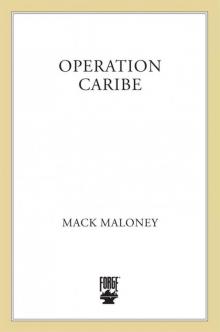 B00447820A EBOK
B00447820A EBOK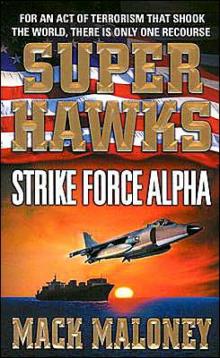 Strike Force Alpha
Strike Force Alpha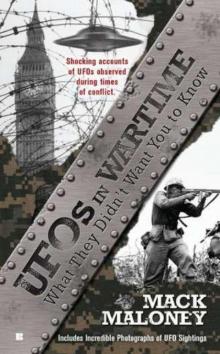 UFOs in Wartime: What They Didn't Want You To Know
UFOs in Wartime: What They Didn't Want You To Know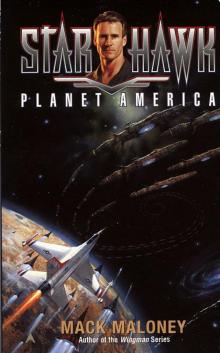 Planet America s-2
Planet America s-2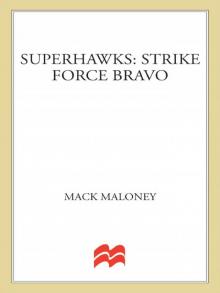 Strike Force Bravo
Strike Force Bravo The Circle War w-2
The Circle War w-2 Operation Sea Ghost ph-3
Operation Sea Ghost ph-3 Strike Force Delta s-4
Strike Force Delta s-4 The Wingman Adventures Volume One
The Wingman Adventures Volume One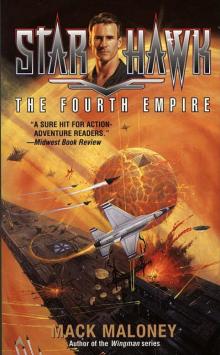 The Fourth Empire s-3
The Fourth Empire s-3 Battle at Zero Point s-4
Battle at Zero Point s-4 Attack on Area 51
Attack on Area 51 Chopper Ops
Chopper Ops B003IKHEWG EBOK
B003IKHEWG EBOK The Pirate Hunters ph-1
The Pirate Hunters ph-1 Chopper Ops co-1
Chopper Ops co-1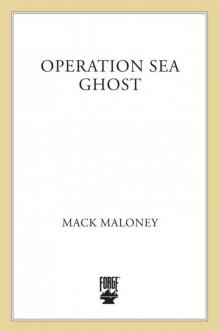 B005J4EW5G EBOK
B005J4EW5G EBOK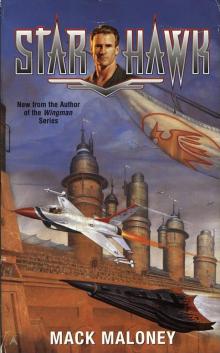 Starhawk s-1
Starhawk s-1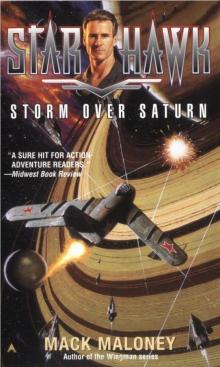 Storm Over Saturn s-5
Storm Over Saturn s-5 Strike Force Charlie s-3
Strike Force Charlie s-3